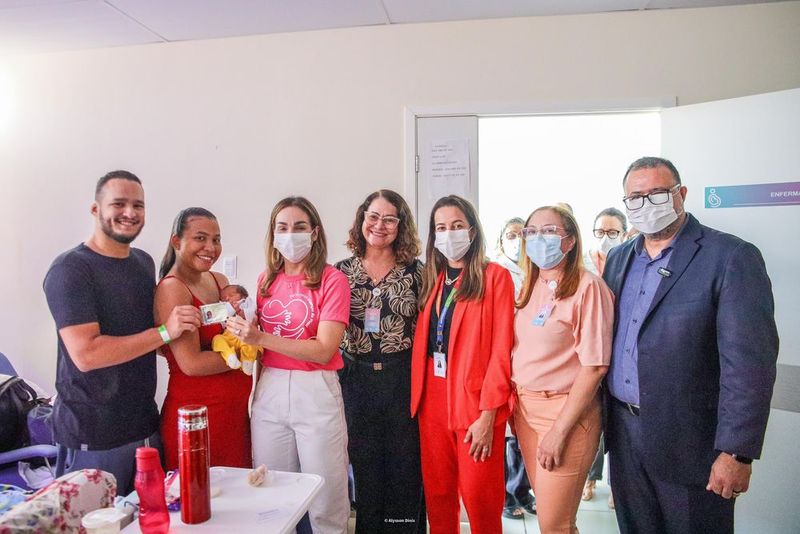The New Maternity Hospital Dona Evangelina Rosa (NMDER), a unit linked to the Piauí State Department of Health (Sesapi), celebrated a historic milestone this week by performing the first neonatal biometric registrations in the state. Little Abner Gael, only four days old, was the first to undergo the procedure on Wednesday (23) and received his National Identity Card (CIN) on Thursday (24).
This initiative is part of the pioneering Neonatal Identification Project, conducted by the Piauí Department of Public Security (SSP) through the Félix Pacheco Digital Identification Institute in partnership with the Piauí Pact for Children.
The project aims to ensure the safety and citizenship of newborns from birth. The technology used allows the collection of newborns’ fingerprints and links them to their mothers’ data, enabling the rapid and secure issuance of identity documents for both.

“We are very happy to deliver the first national identity cards in Brazil through digital newborn biometrics. I’m thrilled to be part of this special moment,” said Isabel Fonteles, coordinator of the Pact for Children of Piauí.
Leylane Raylla de Sales Borges, mother of little Abner, highlighted the importance of the new neonatal identification process in Piauí. “I think it’s important because it provides us with security, especially for me, as a first-time mother. We worry about everything, and this brings relief, knowing he already has his ID, everything prepared. Everyone knows he’s mine, and I’m his,” emphasized Leylane Borges.

The director of Nova Maternidade Dona Evangelina Rosa, Carmen Viana, emphasized that, in addition to reinforcing the concept of citizenship from the first days of life, the process being tested at NMDER also aims to offer families greater security by preventing potential incidents like baby switching or abductions.
“We are conducting a test for the implementation of an infant biometric program. In the future, all children born at the maternity ward will be able to have this biometric identification, allowing their identity to be established from birth, ensuring both citizenship and increased security. This system will help us prevent cases of baby switching or abductions, providing even greater peace of mind for families,” she noted.

The test included the collection of biometric data directly at the maternity ward, and a final assessment is being conducted after the completion of this phase.
“We are testing an innovative technology to capture the fingerprints of newborns. Issuing an ID requires a level of sensitivity that, until now, didn’t exist for capturing such small fingerprints. With this new technology, we were able to generate the first national identity cards for newborns. Now, we will validate the system’s efficiency, and soon, Nova Maternidade Dona Evangelina Rosa will be the first to issue newborns’ ID cards immediately after birth, with an integrated exit control system, providing greater security,” explained Marcelo Mascarenha, director of the Instituto de Identificação Digital Félix Pacheco.
Related Articles:




